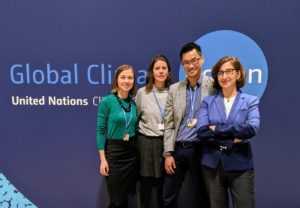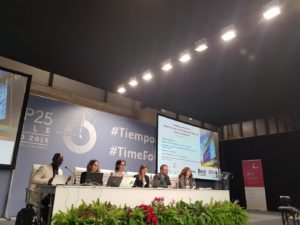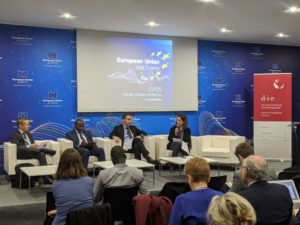
Addressing a Davos audience last year, in January 2022, Japanese Prime Minister Fumio Kishida publicly declared his vision for an Asia Zero Emissions Community (AZEC). Under Tokyo’s leadership, Kishida said, AZEC would drive regional cooperation and joint financing on renewable energy technologies and infrastructure, standardisation, and an emissions trading zone.
A year on, Prime Minister Kishida and Japan’s Minister of Economy, Trade and Industry, Yasutoshi Nishimura, have now laid much of the necessary diplomatic groundwork for a more concrete set of initiatives. Tokyo has successfully secured buy-in to the concept from a range of partners, including Indonesia, Singapore, Malaysia, Thailand, Vietnam, the Philippines, and Australia.
AZEC should be viewed in the broader context of geopolitical competition in the Indo-Pacific. In line with this, Kishida has acknowledged that he does not expect China to join. The AZEC in large part seeks to build a narrative around Japan’s existing Asia Energy Transition Initiative (AETI), which was initially viewed by some as thin on detail. The narrative includes five core pillars of collaborative action: support for the creation of national energy transition roadmaps in partner states, transition finance presentation and promotion, $10 billion in direct funding for renewables and other energy projects, the development and dissemination of new green technologies, and training programs for those tasked with operating them.
On the sidelines of last November’s G20 summit in Bali, AZEC’s first major deal was unveiled between Japan and Indonesia. Japan’s state-owned corporation Nippon Export and Investment Insurance (NEXI) agreed to insure up to $500 million of loans for Indonesian electric utility company PLN to accelerate its green energy transition. And the state-owned Japan Bank for International Cooperation signed an additional pact to facilitate further collaboration between PLN and Japanese corporations.
To drive further momentum, Japan has invited energy ministers and business delegations from partner states to Tokyo in early March for two days of discussion on AZEC proposals. Progress made on further deals here will likely give a better sense of the true scale and shape of Tokyo’s ambitions.
Green chequebook diplomacy?
AZEC has been linked with Japan’s top-level strategic concept of the Free and Open Indo-Pacific. Japan has a long history leading on aid, trade, and investment in Southeast Asia that dates back to the Cold War era. As the US moves to establish new military bases in the Philippines to counter China, Japanese leadership across Southeast Asia remains predominantly economic. In part, these dynamics echo Japan’s much maligned ‘chequebook diplomacy’ – most closely associated with Tokyo’s foreign policy in the early 1990s. Japan contributed $13 billion to the first Gulf War in 1991, yet received little in the way of international recognition and faced criticism for not committing troops. We argue that Japan should be optimistic about the potential of this new green chequebook diplomacy, as it holds three key advantages over its 1990s forerunner.
First, substantial investment in the region’s clean energy transition is likely to be recognised and rewarded by a range of actors at the regional and global level. Indo-Pacific states at the sharp end of the climate crisis have much at stake, and AZEC will be supported by close geostrategic partners like Australia that are similarly concerned about providing alternatives to Chinese investment.
Second, Japan’s new green chequebook diplomacy works in tandem with a greater regional role for Japan’s Self-Defense Forces (SDF). The SDF are involved in an increasing number of joint exercises in the region, and defence budgets continue to rise. So while economic measures may be Japan’s preferred tool in the region, it is not shying away from deploying military assets either.
Third, green chequebook diplomacy is more likely than its forerunner to result in mutual economic benefits instead of one-way transfers. A clear part of Japan’s strategic thinking about green energy cooperation is how to drive growth in its domestic green energy industries.
Challenges
At the same time, Japan must overcome challenges if it is to maximise returns on its new strategic concept. Most urgently, Japan needs to match the vision of the AZEC with bolder domestic action to reduce its own emissions. Tokyo’s plan to refit current coal-fired power stations to burn ammonia has been labelled a ‘false solution’ by those who claim it will only prolong the use of coal. And at COP27 in 2022 Japan was awarded the inaugural ‘fossil of the day award’ by activists for climate inaction. If Tokyo is to shake off accusations that AZEC is more an industrial strategy than a genuine attempt to combat the climate crisis, then bolder action is needed to transform Japan’s image from climate laggard to leader.
Meanwhile, Japan’s AZEC concept faces potential competition from other powerful actors that are developing their own varieties of green energy statecraft. China, the US and the EU are among those actively seeking to harness climate diplomacy to pursue their geostrategic aims, and Tokyo faces competition even from its closest partners as they seek to maximise returns on their individual strategies.
As AZEC’s first scheduled multilateral meeting approaches, though, Japan’s climate diplomacy is gathering momentum and interest – enhancing the prospect of cooperation and mutual benefits in the coming Indo-Pacific clean energy transition.





 We are a long way from 2015. That year, the world committed to the Sustainable Development Goals and the Paris Agreement on climate – promising to end extreme poverty, address corrosive inequality, boost peace and prosperity, and stop climate change.
We are a long way from 2015. That year, the world committed to the Sustainable Development Goals and the Paris Agreement on climate – promising to end extreme poverty, address corrosive inequality, boost peace and prosperity, and stop climate change.